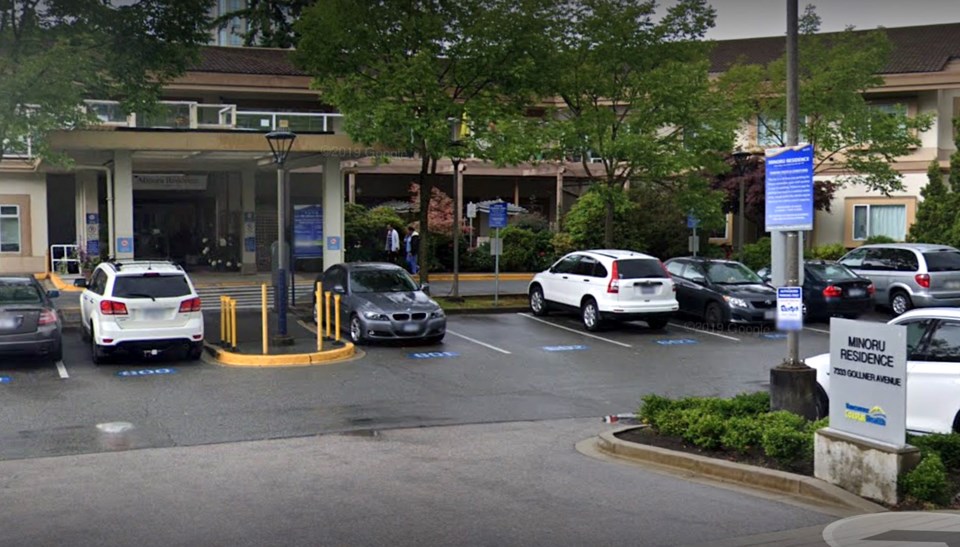The majority of long-term care residents in Richmond have received their first dose of the COVID-19 vaccine, according to new data from the Ministry of Health.
The report lists the vaccination rates in individual long term care homes, including those with co-located assisted living facilities, across the province. Data is current as of Feb 15.
According to the report, over 90 per cent of residents at most of the Richmond facilities listed in the report had received their first dose, while one care facility had less than 90 per cent vaccinated.
The breakdown of vaccinations at the Richmond facilities listed in the report is as follows:
- Minoru Residence: 221 or 243 total residents (91 per cent) have received their first dose
- Pinegrove Place: 71 of 77 residents (92 per cent) have received their first dose
- Lions Manor: 77 of 89 residents (87 per cent) have received their first dose
- Rosewood Manor: 150 of 164 residents (91 per cent) have received their first dose
- Fraserview: 75 of 82 residents (91 per cent) have received their first dose
- Courtyard Gardens: 135 of 138 residents (98 per cent) have received their first dose
A coverage rate below 100 per cent may be due to residents declining vaccination, not being on site when the facility had a vaccination clinic or residents being unable to receive their dose for medical reasons.
The report also notes that the total number of residents excludes those who were asymptomatic or who recently have had COVID-19.
On average, the rate of immunization at B.C.'s care homes is 91 per cent, Health Minister Adrian Dix said at Friday’s media briefing.
The province has so far provided 192,942 doses of vaccine to 156,019 people. Of that number, 36,923 people have received their second dose.
B.C., however, has been delaying the interval between first and second doses amid ongoing shortages of vaccine deliveries.
Both Moderna Inc. and Pfizer recommend intervals of about three to four weeks between doses, however, B.C. has stretched that period over the past few weeks – first from 35 days and then to 42 days.
Dr. Reka Gustafson, B.C.’s deputy provincial health officer, said at Friday’s briefing that there is “rigorous public health debate” on delaying second doses.
She said that health officials are reviewing the data “very, very carefully and evidence is accumulating to support that as a potential approach for maximizing protection in the population.”
The BC Centre for Disease Control has released some in-province, preliminary findings suggesting that the first dose of the vaccine reduced the risk of COVID-19 in long-term care residents and health-care workers by 80 per cent within two to three weeks of receiving the jab.
The analysis, led by the BCCDC’s Dr. Danuka Skowronski, compared the risk of becoming a COVID-19 case in the first ten days following vaccination, to the risk two or more weeks after vaccination.
“In that way they were able to show vaccine effectiveness of 80 per cent or more beginning just a few weeks after vaccination,” a statement from the BCCDC reads. “This means that a single dose of vaccine could prevent at least eight out of every 10 cases of COVID-19.”
The BCCDC said the findings, which have not been peer-reviewed, are encouraging as about 60 per cent of COVID-19 deaths in B.C. have been residents of long-term care facilities.
Vaccinations for the broader population, meanwhile, are expected to roll out beginning in April, beginning with British Columbians aged 80 and above, followed by Indigenous seniors over the age of 65 and other hospital staff.
- With files from Tyler Orton, Business in Vancouver



